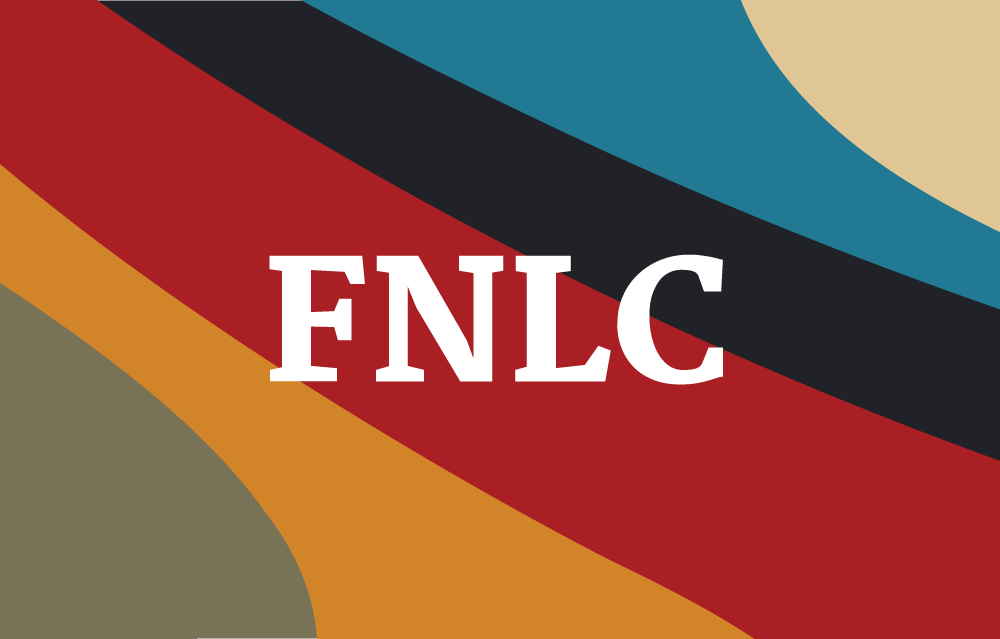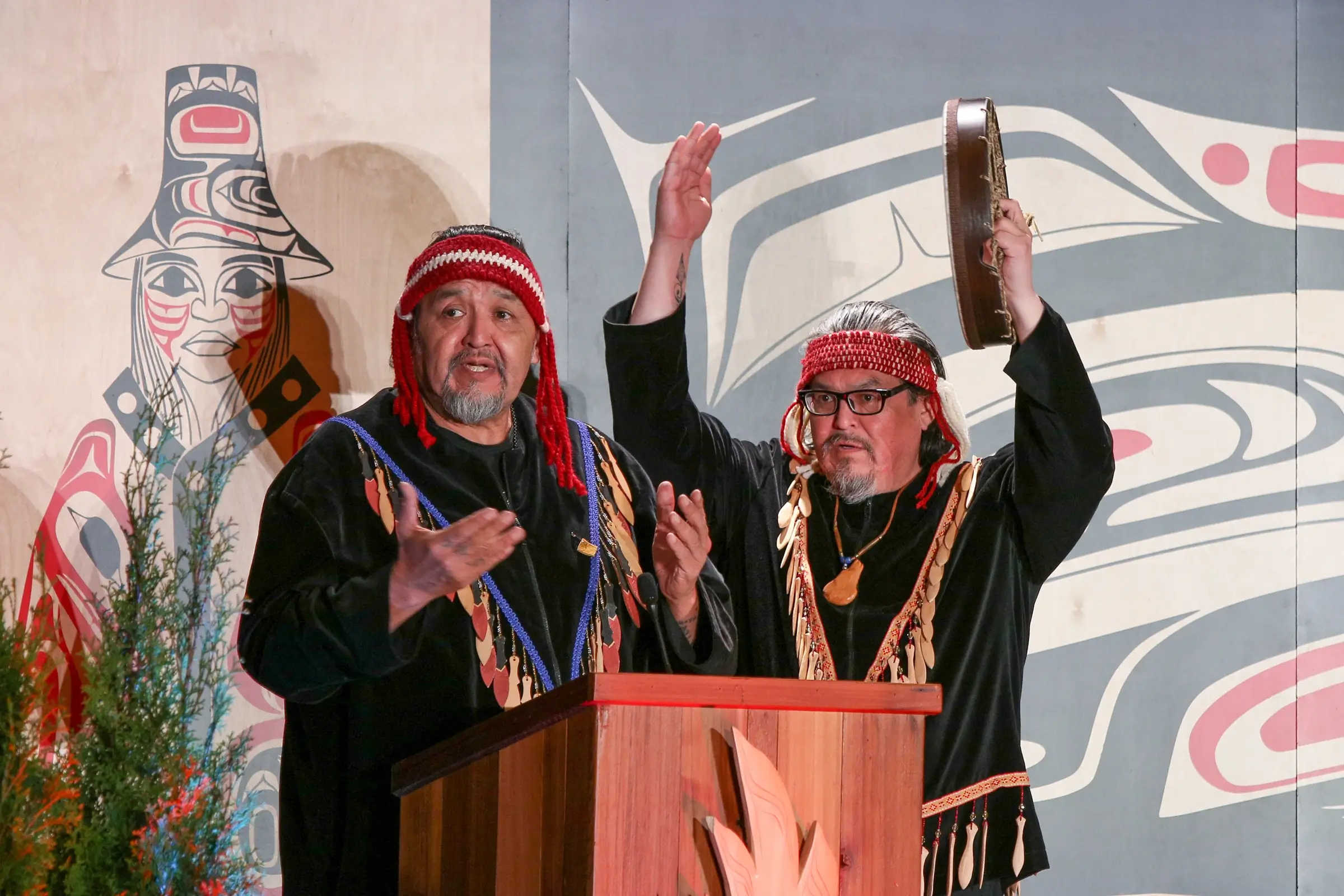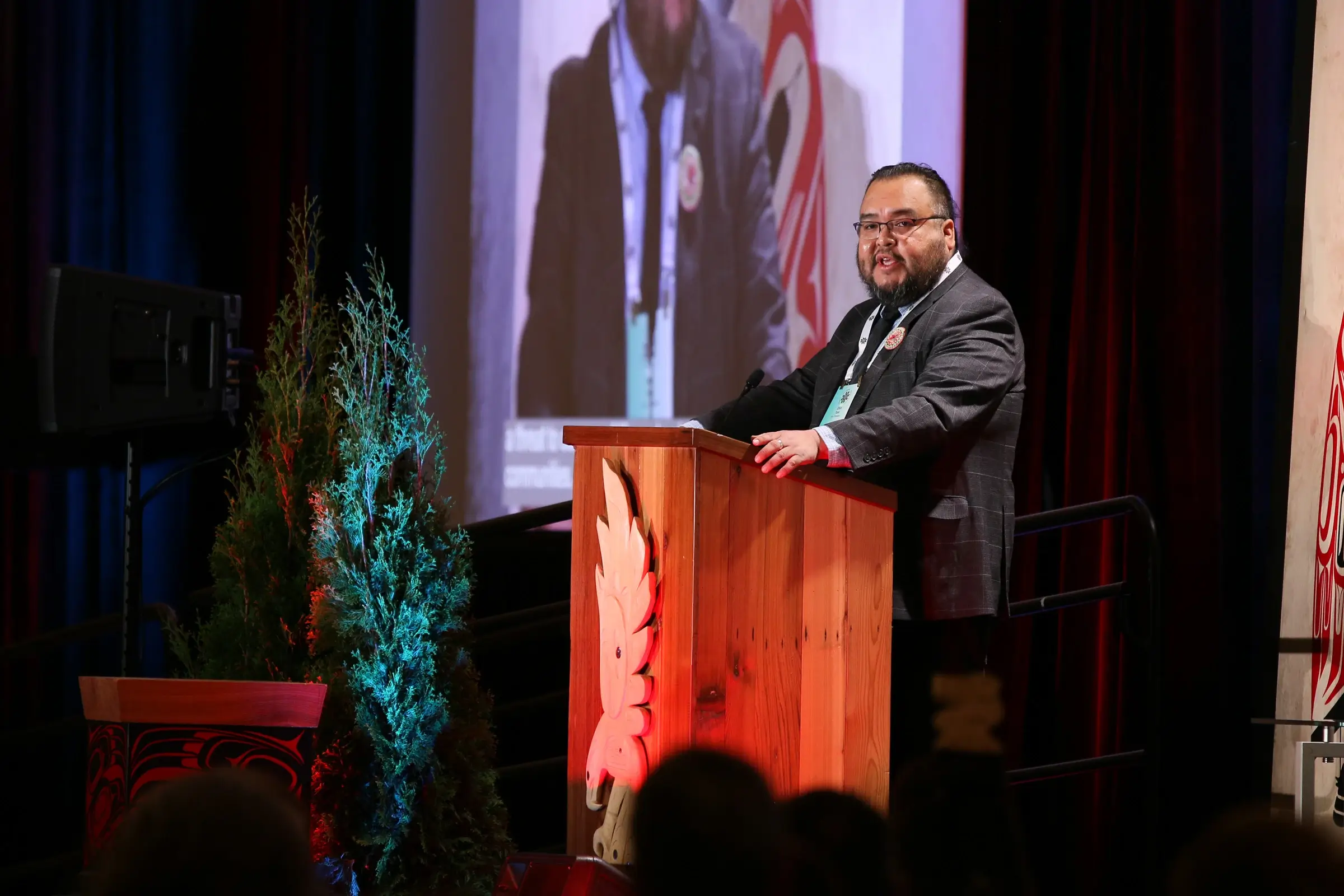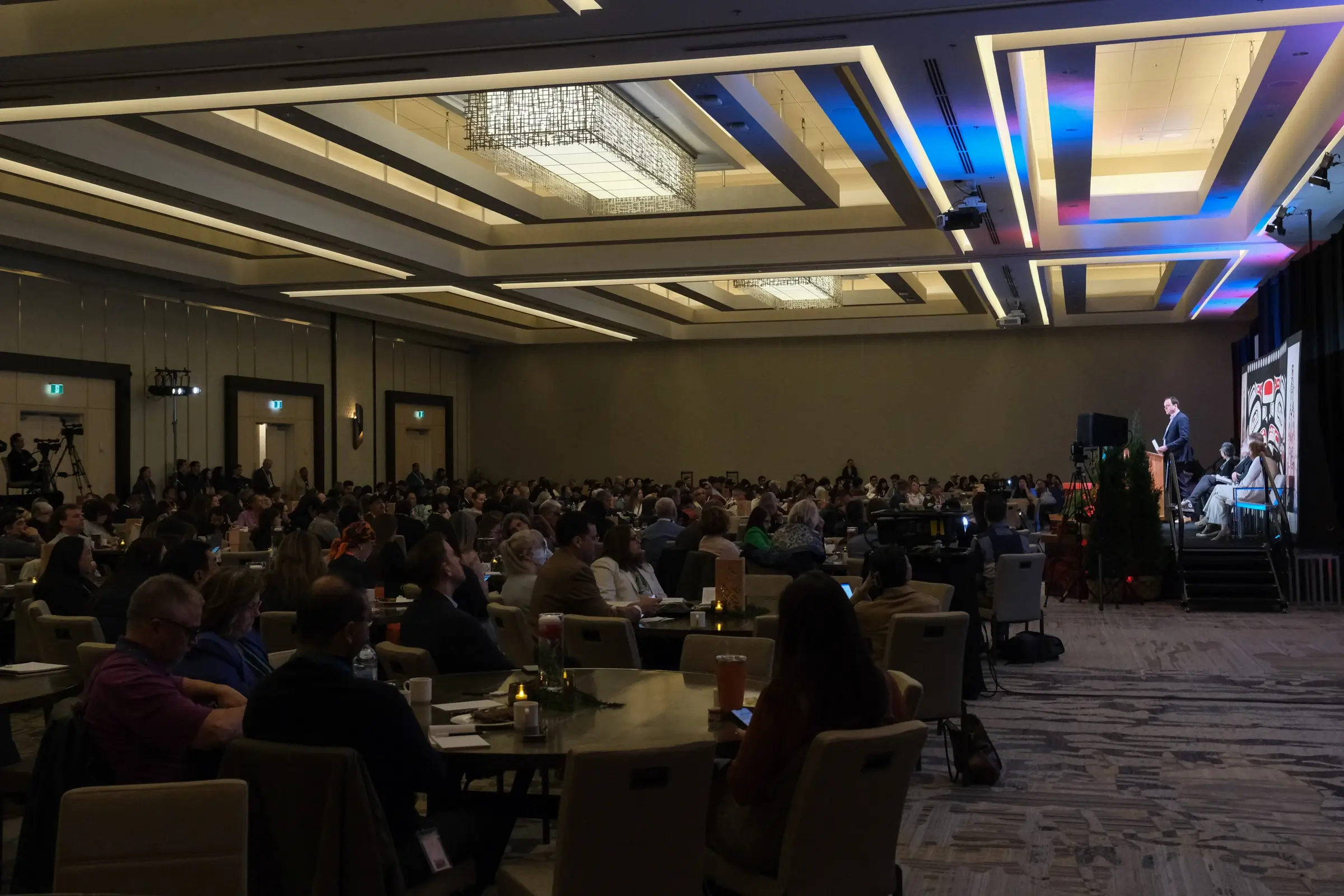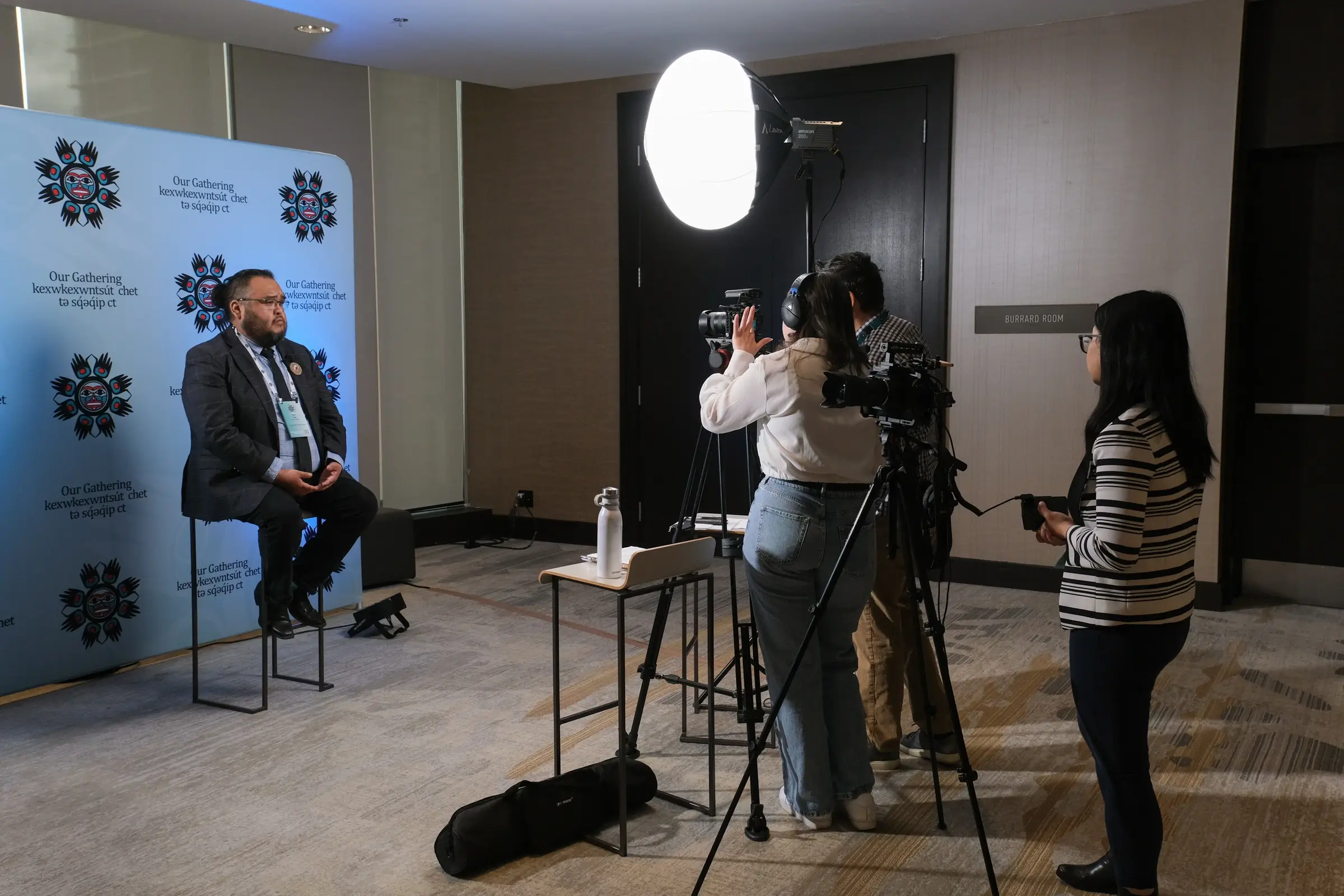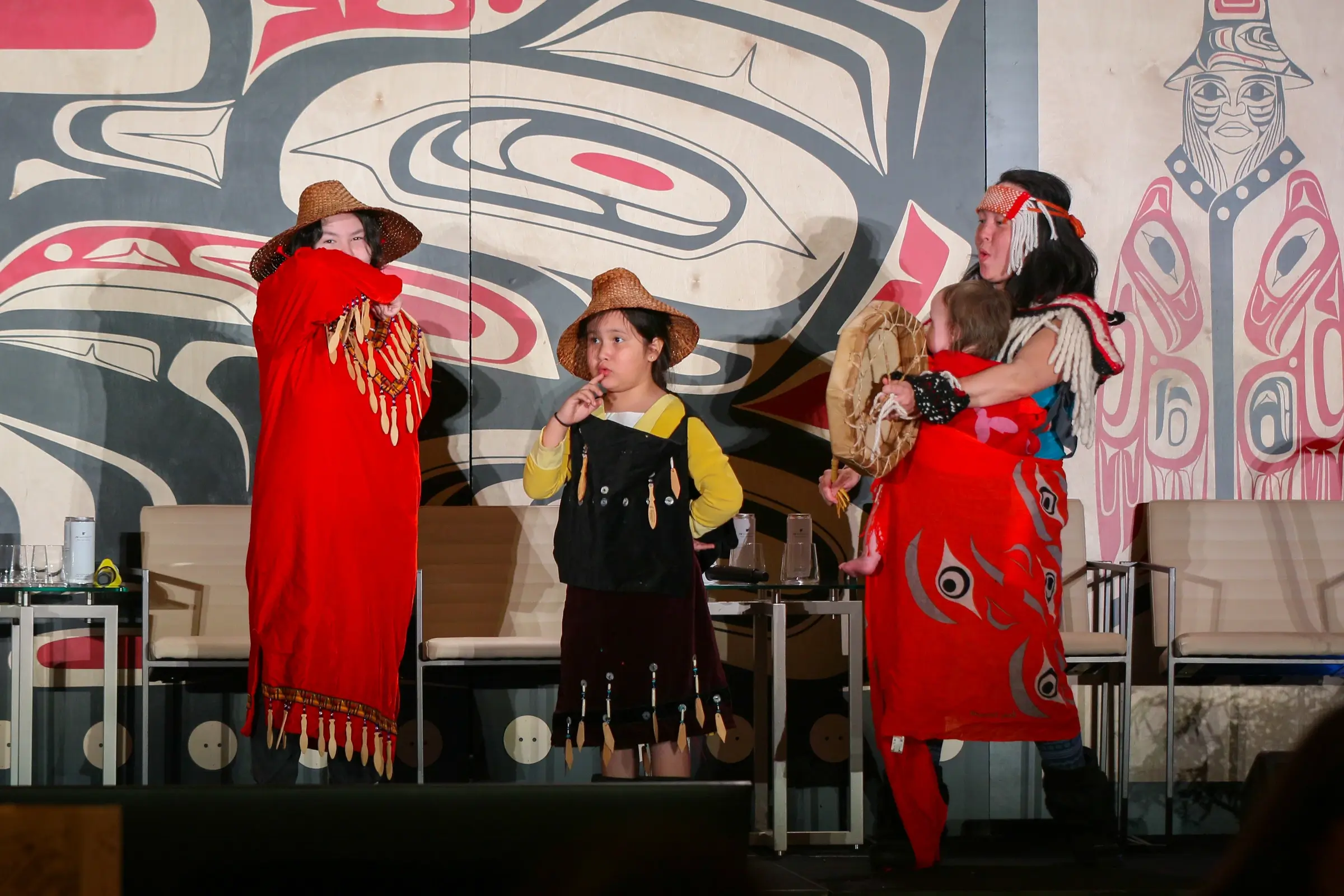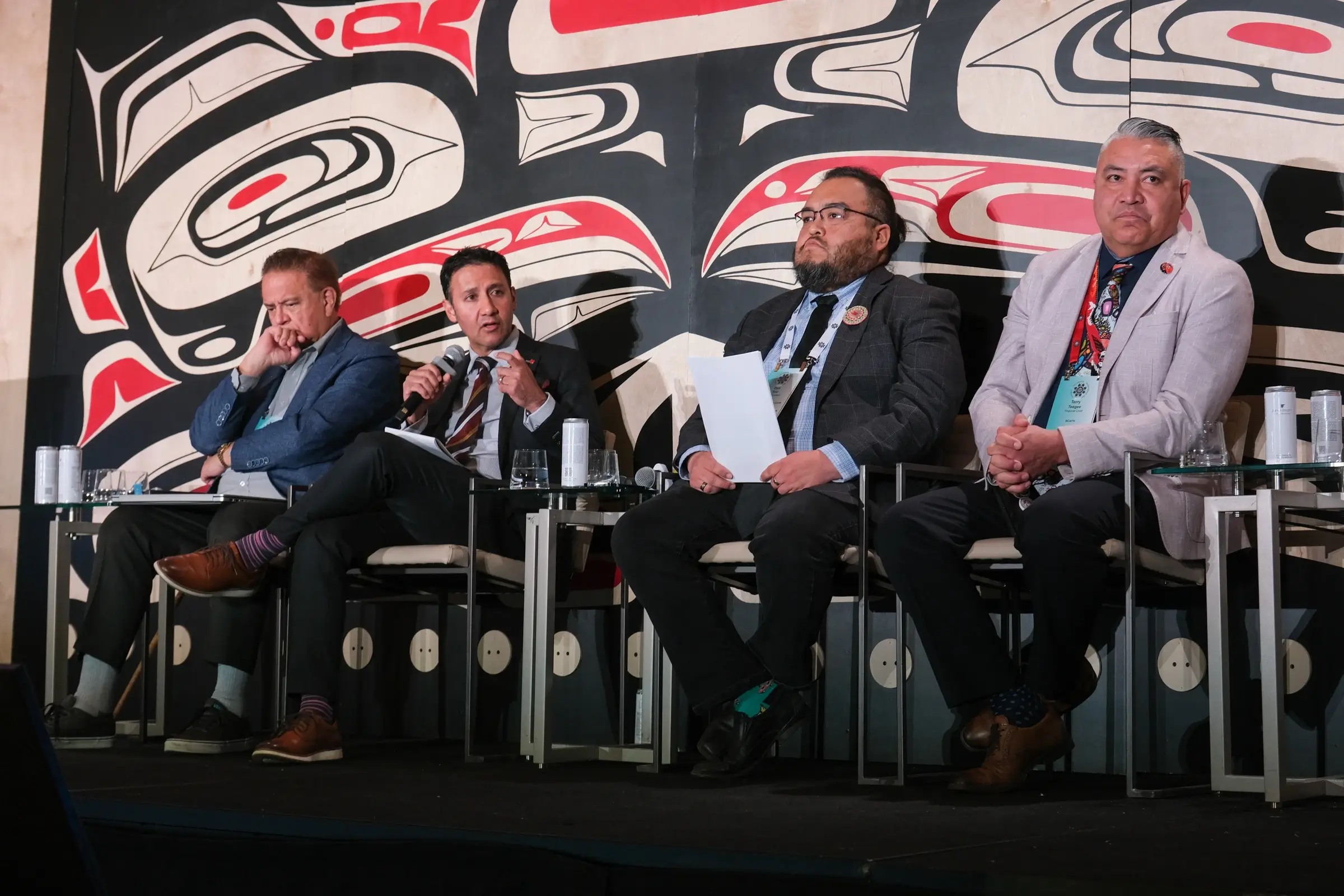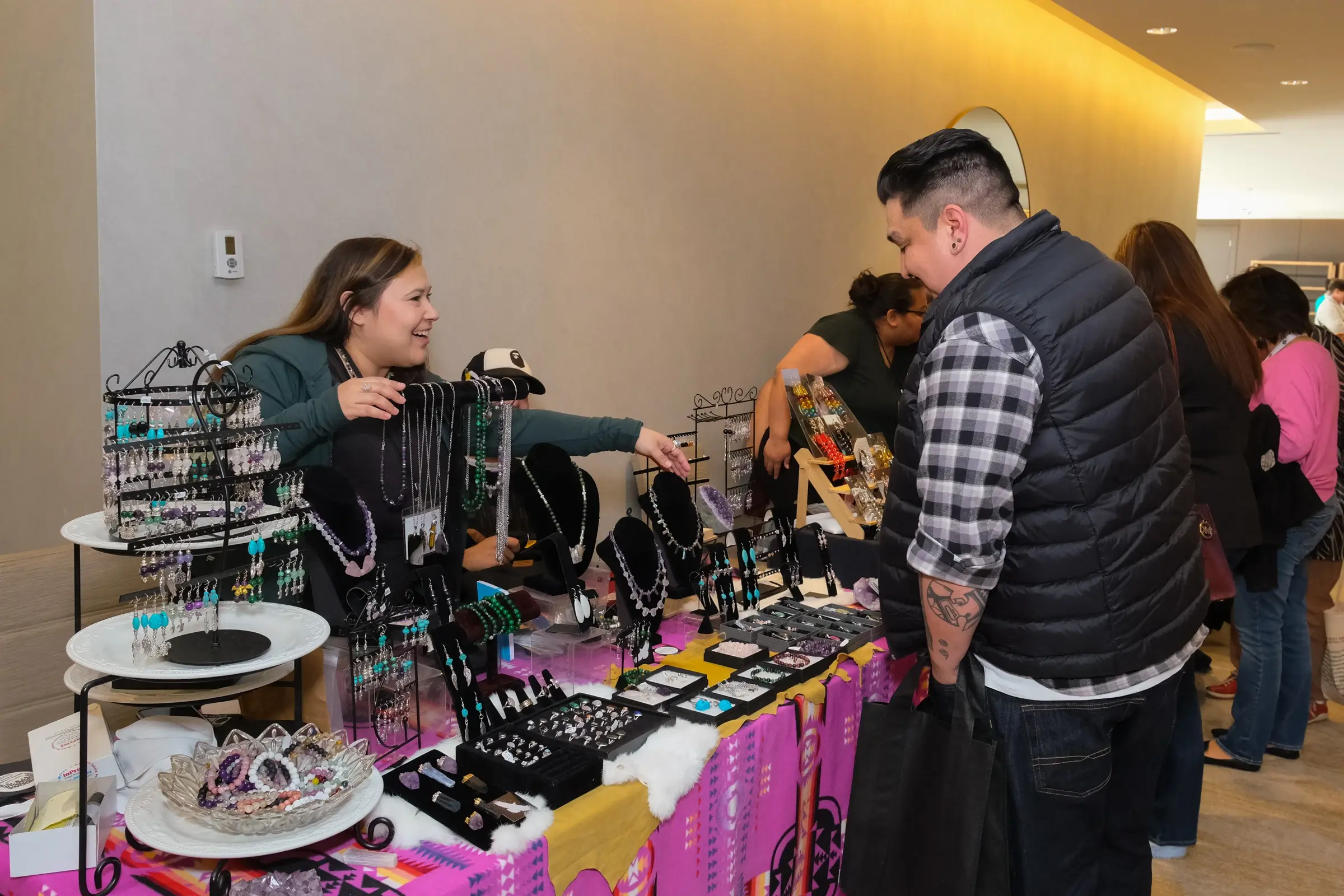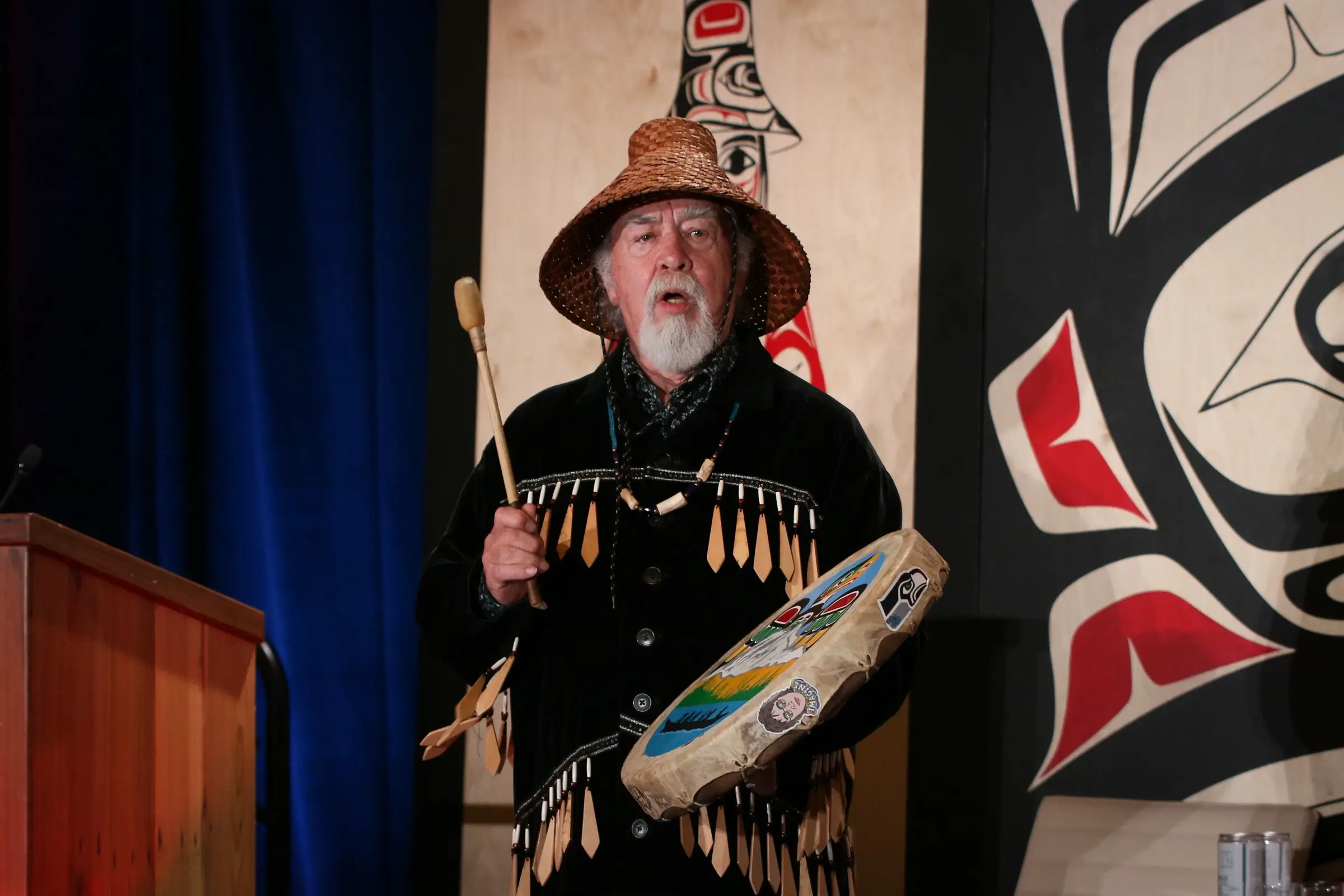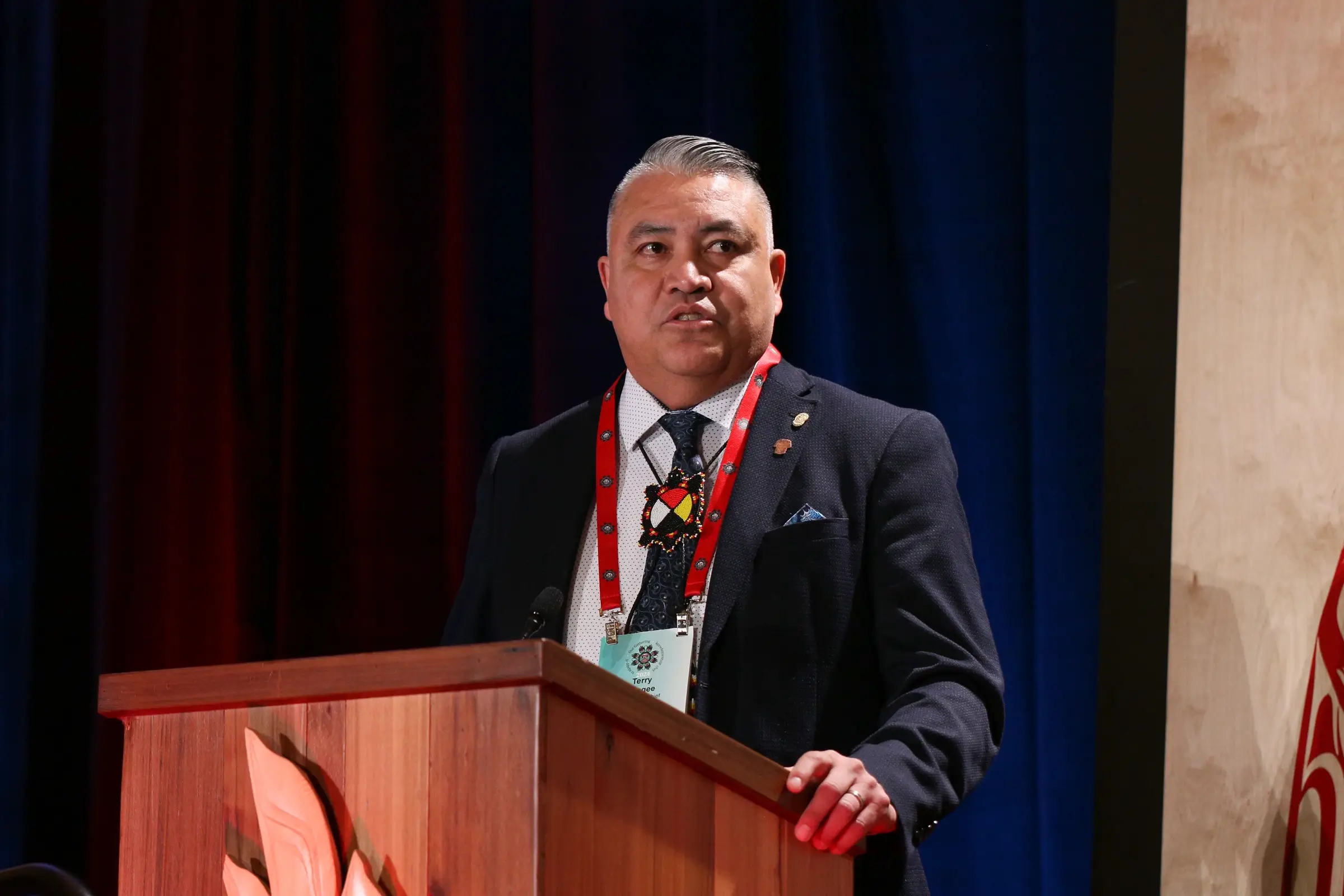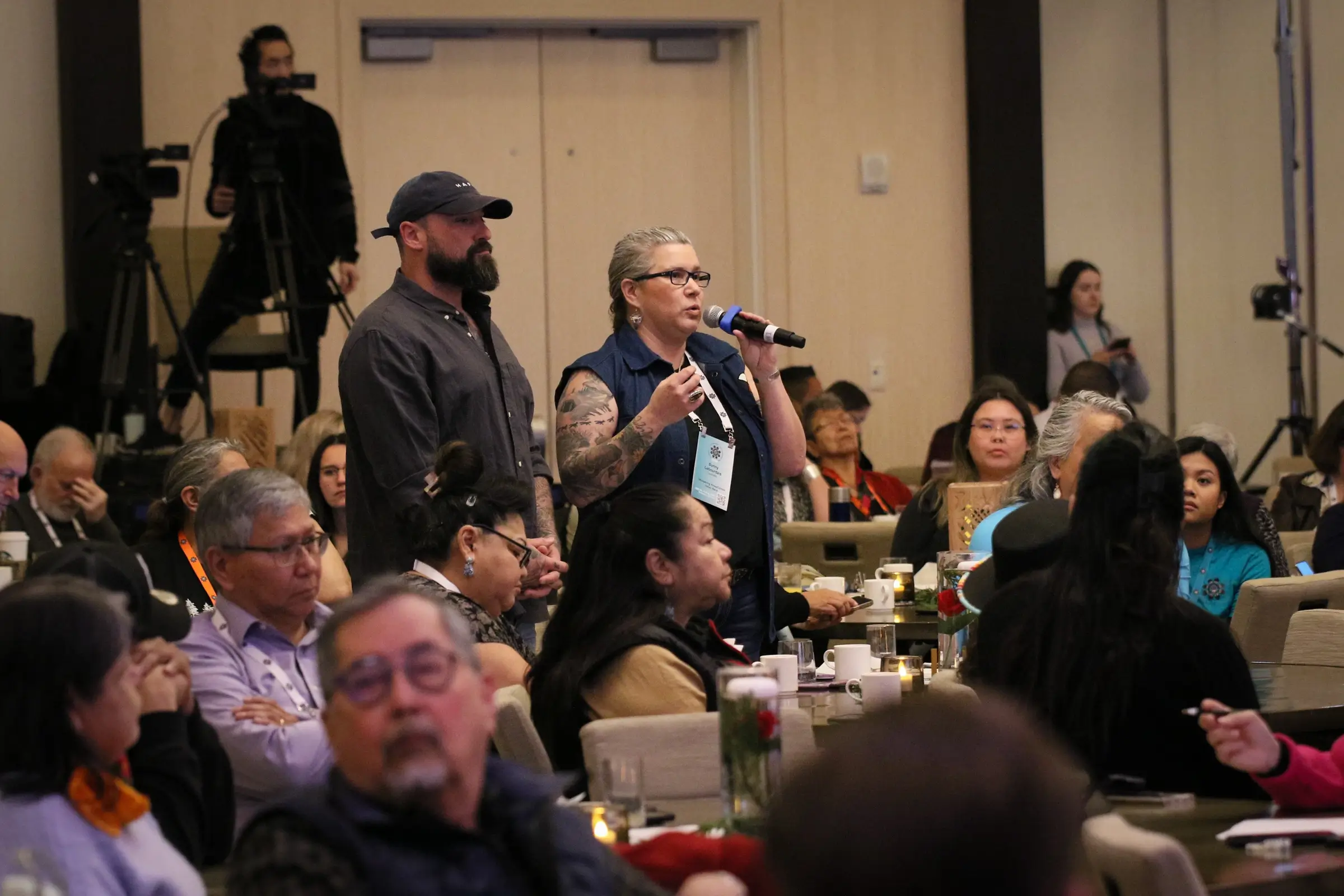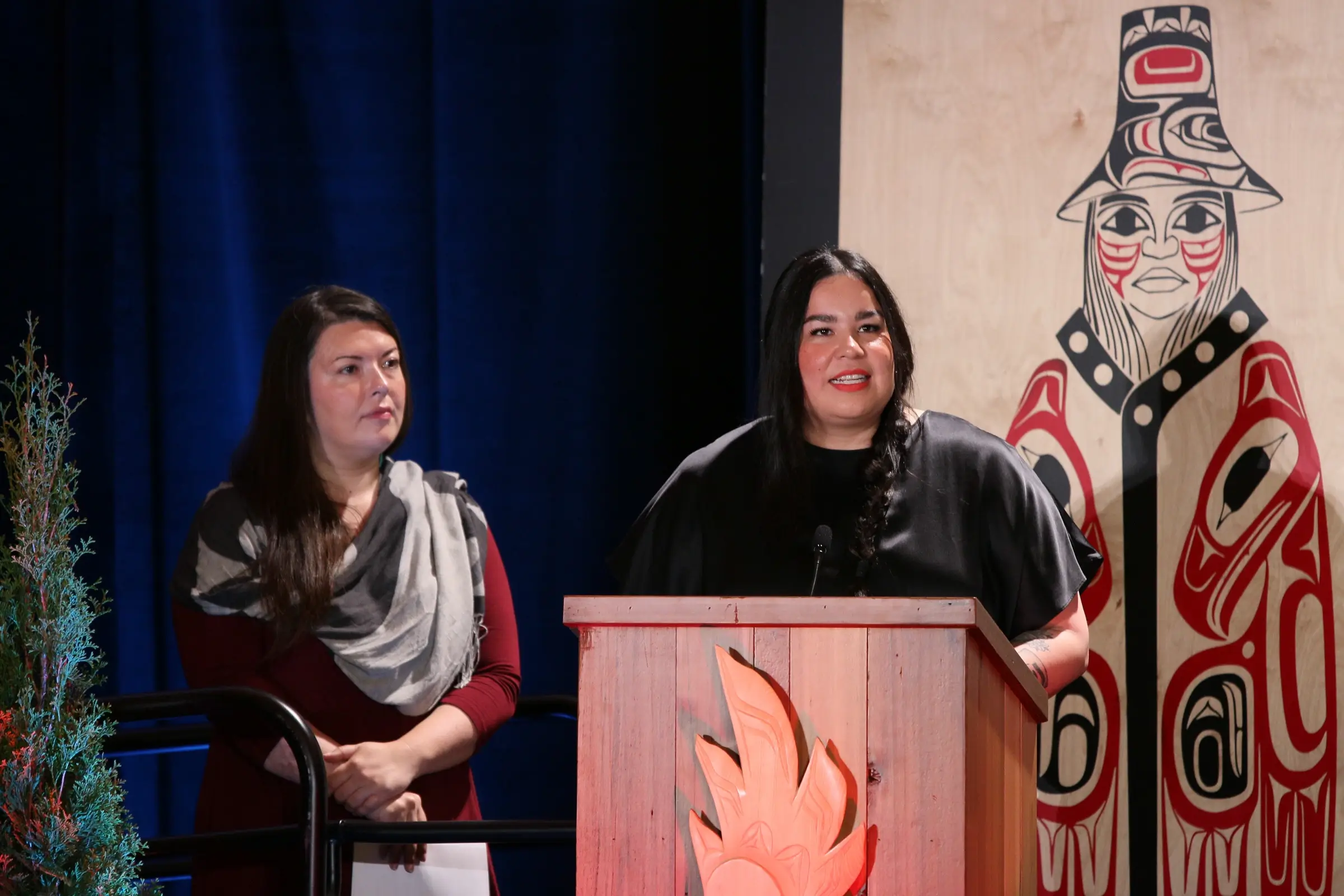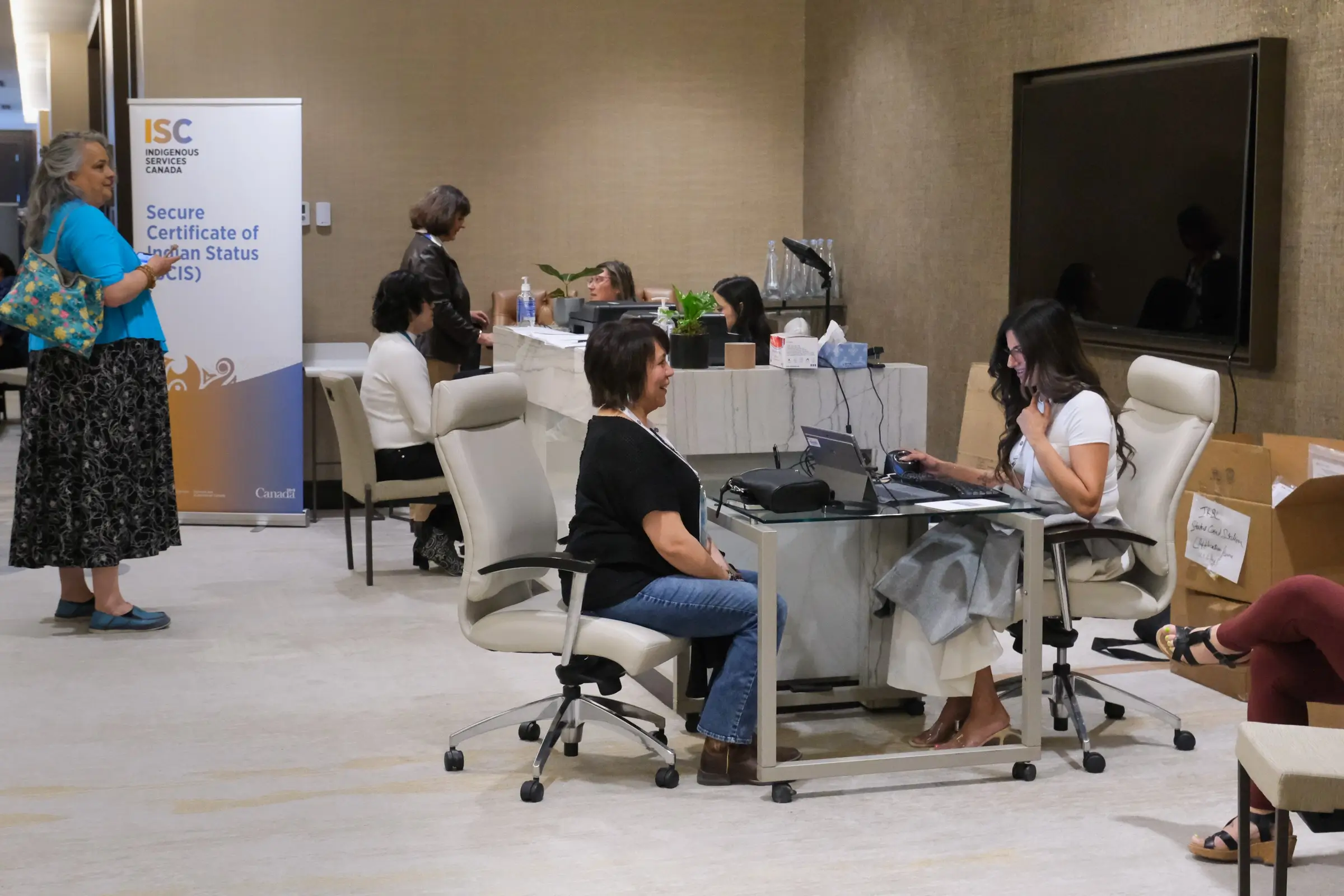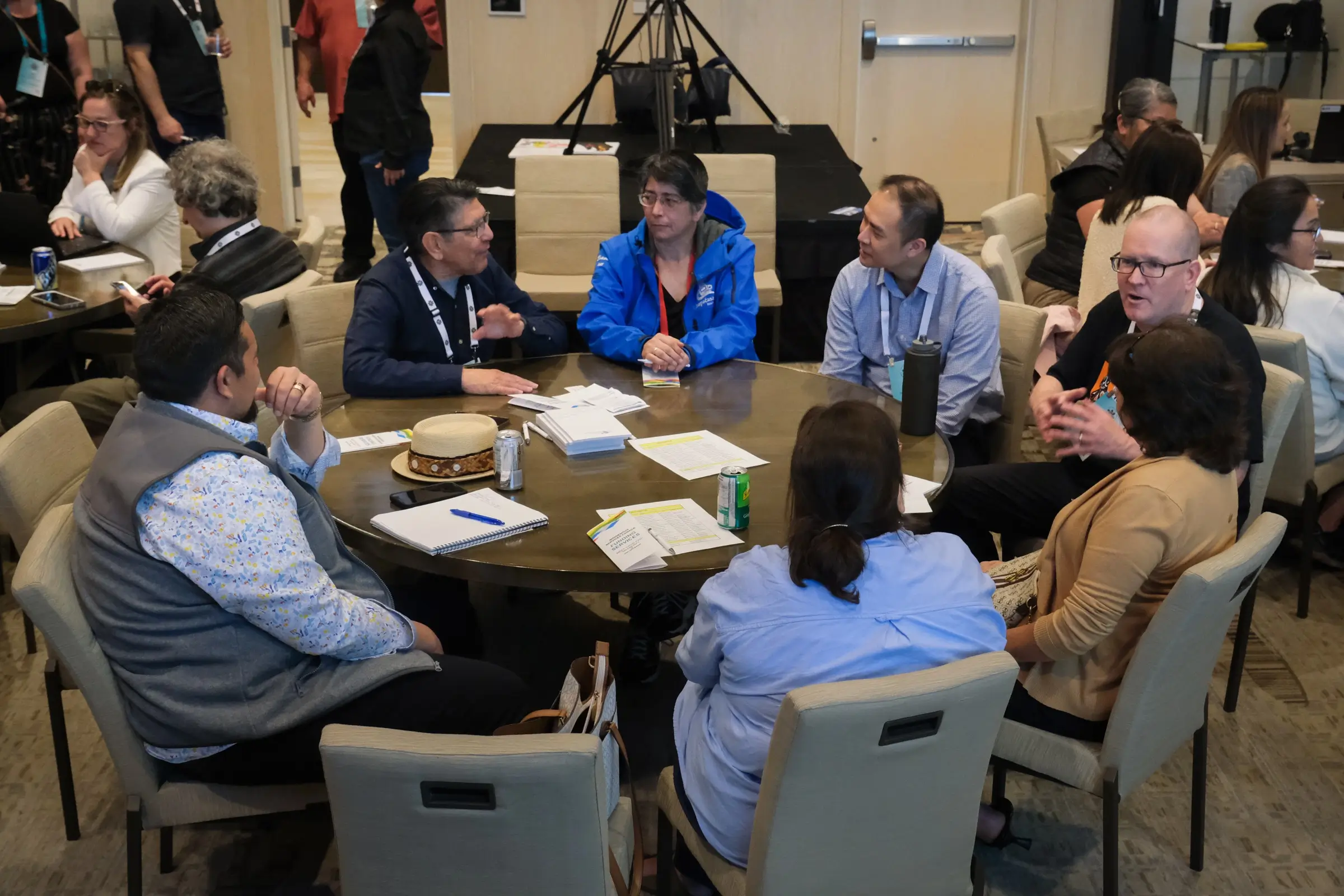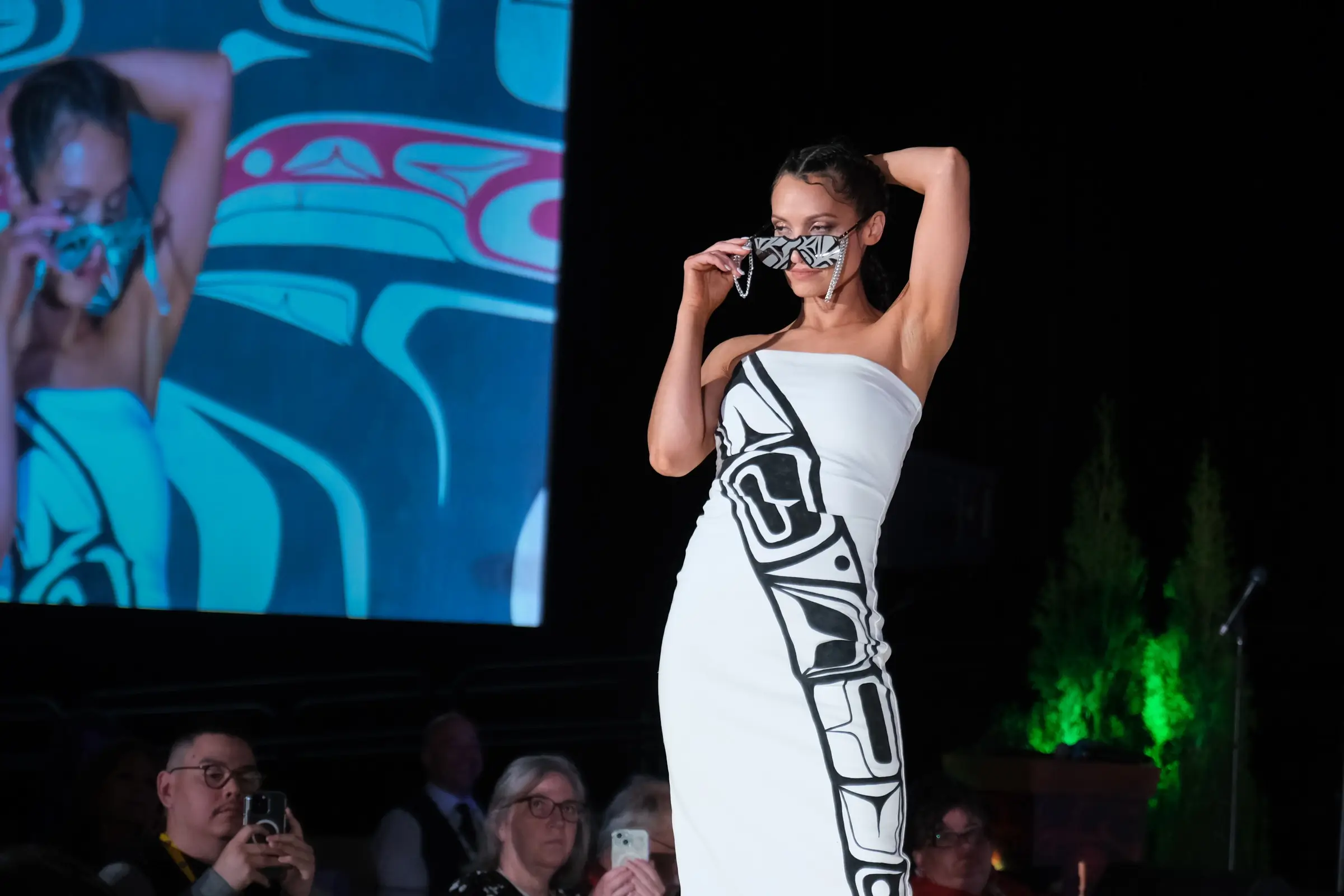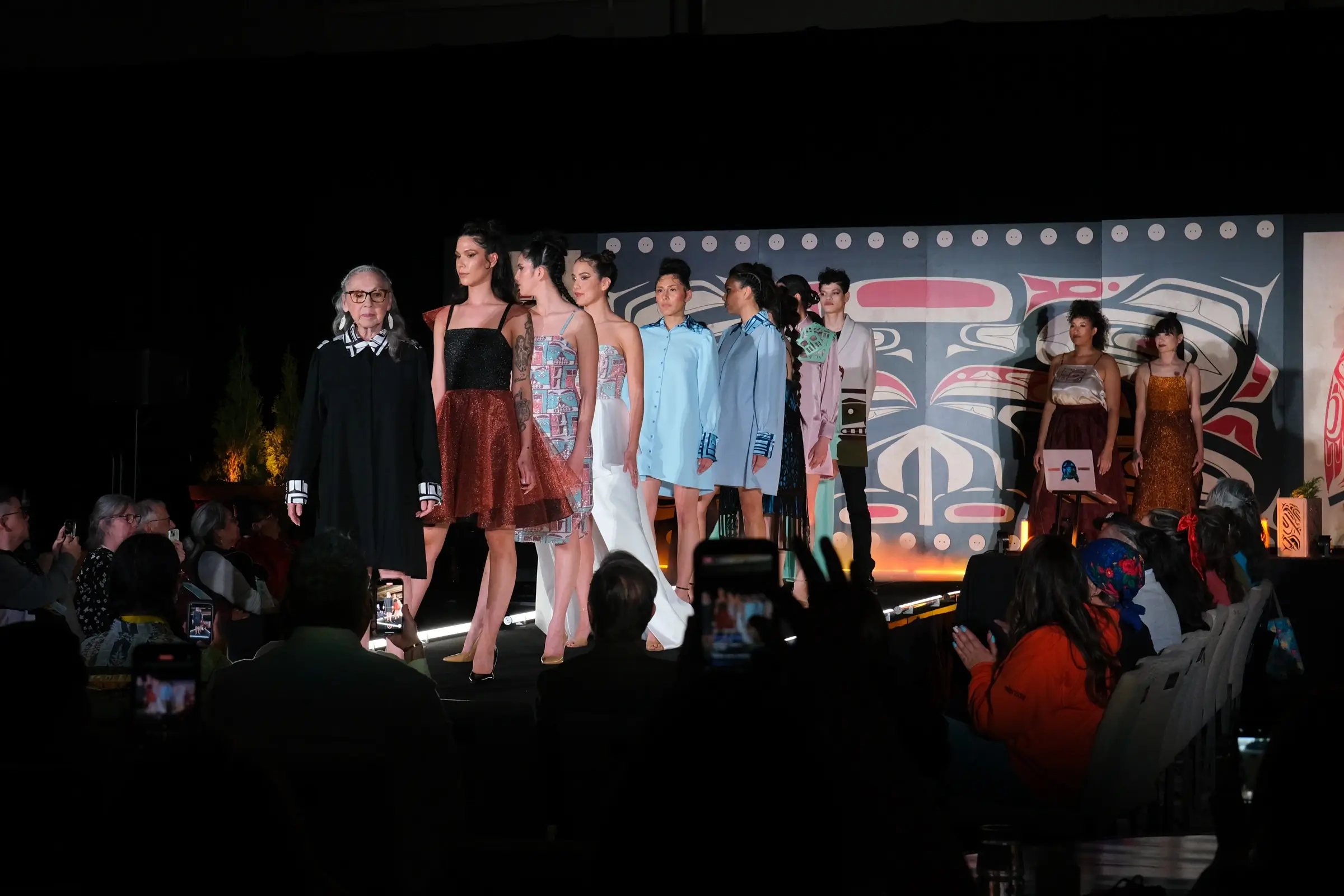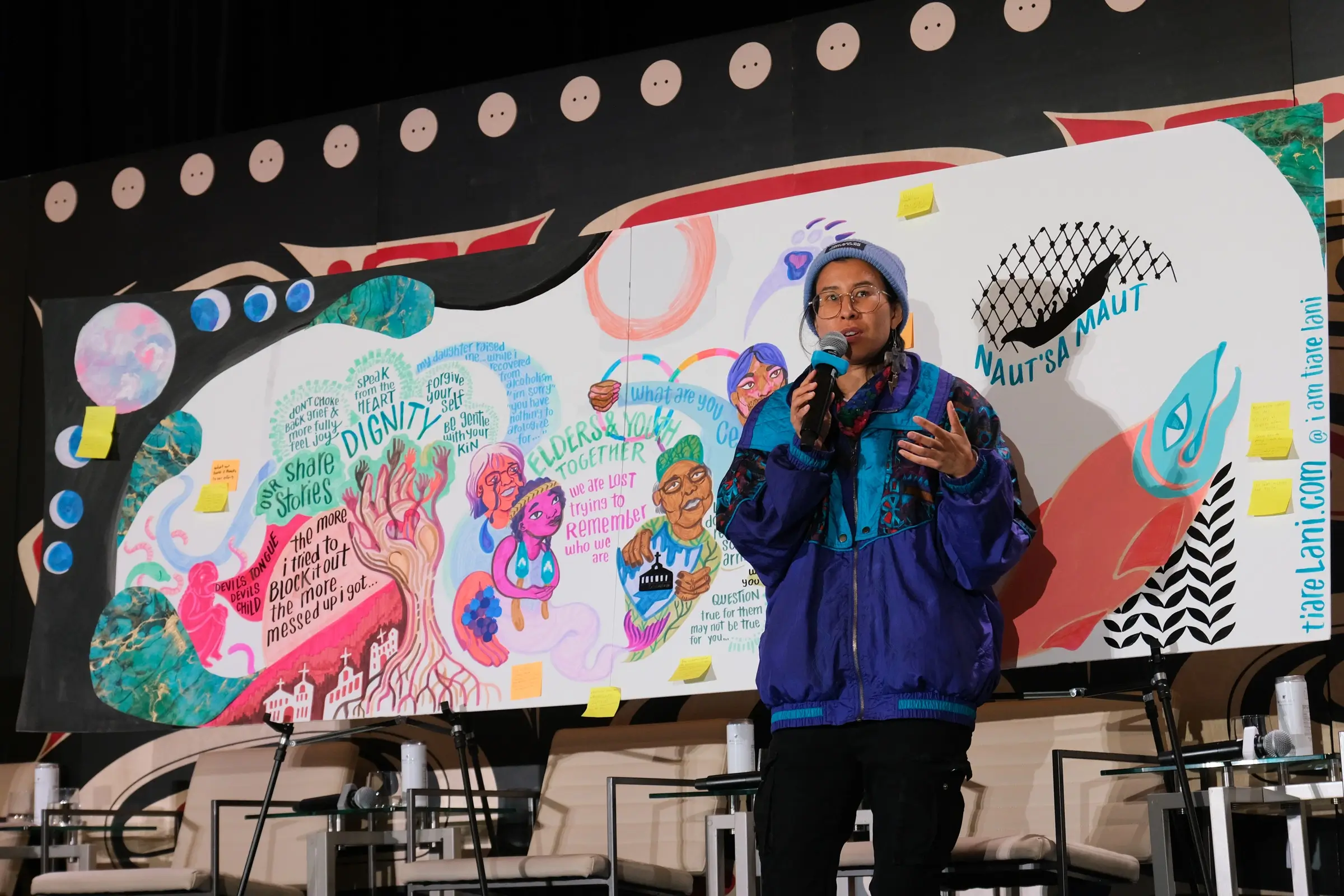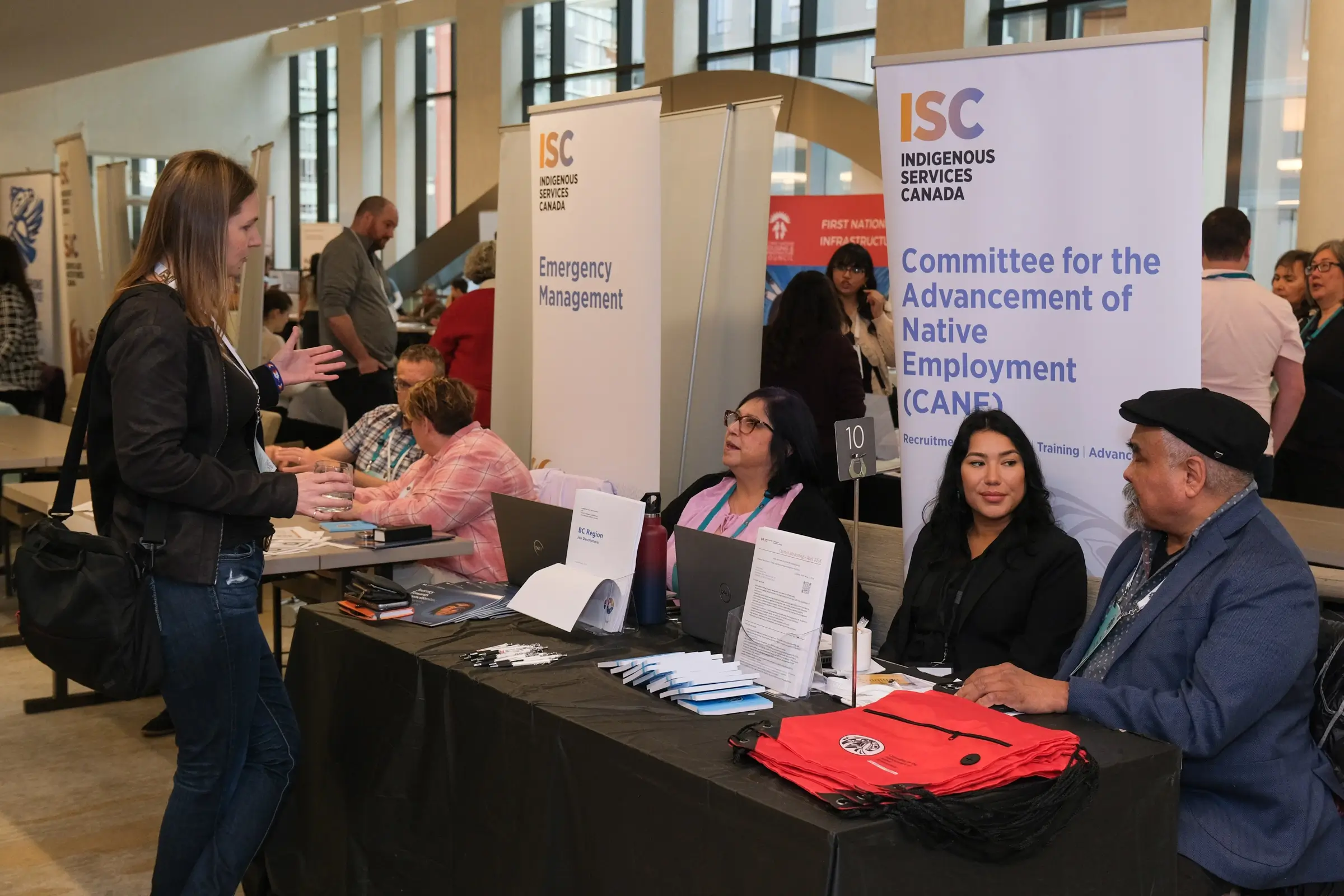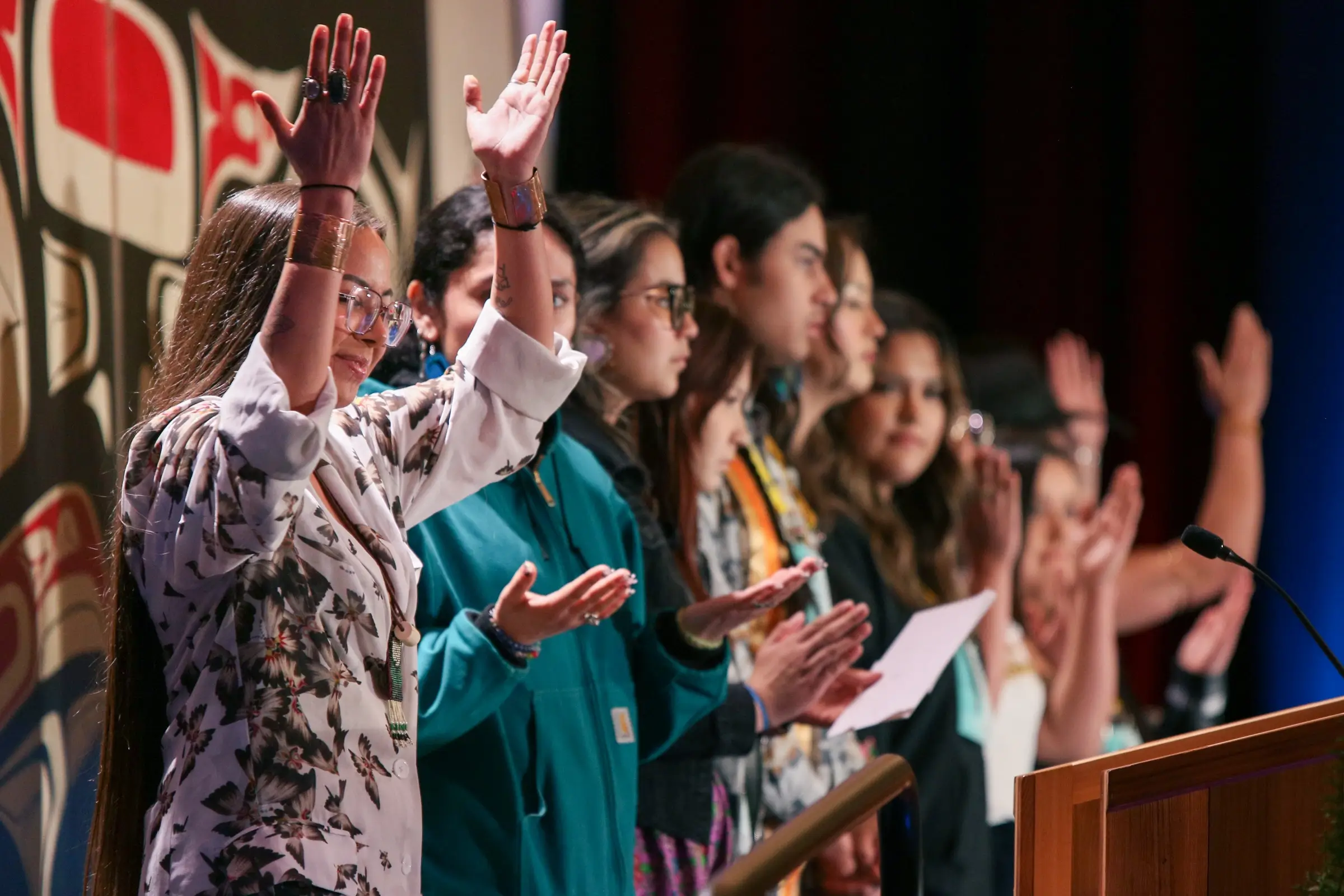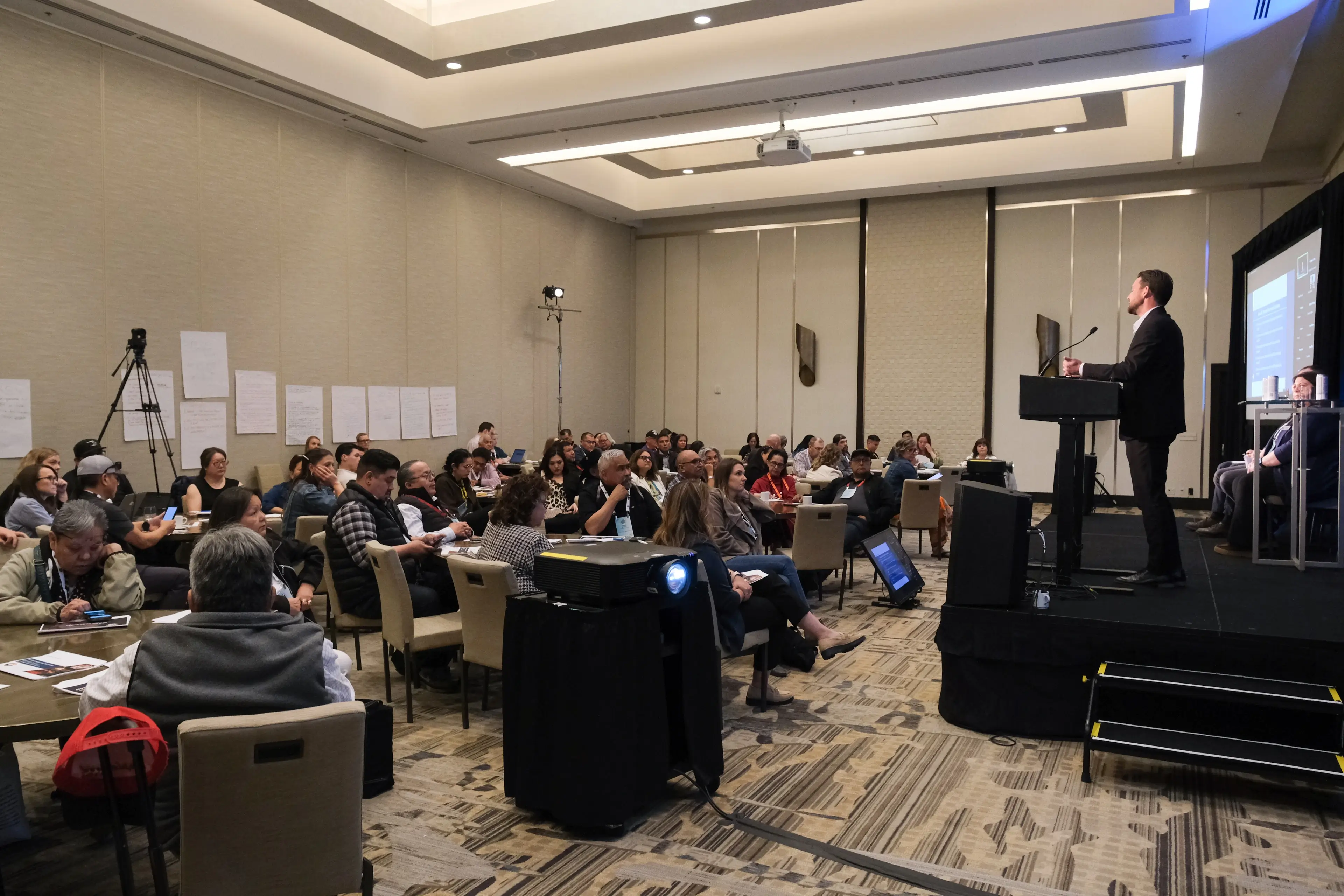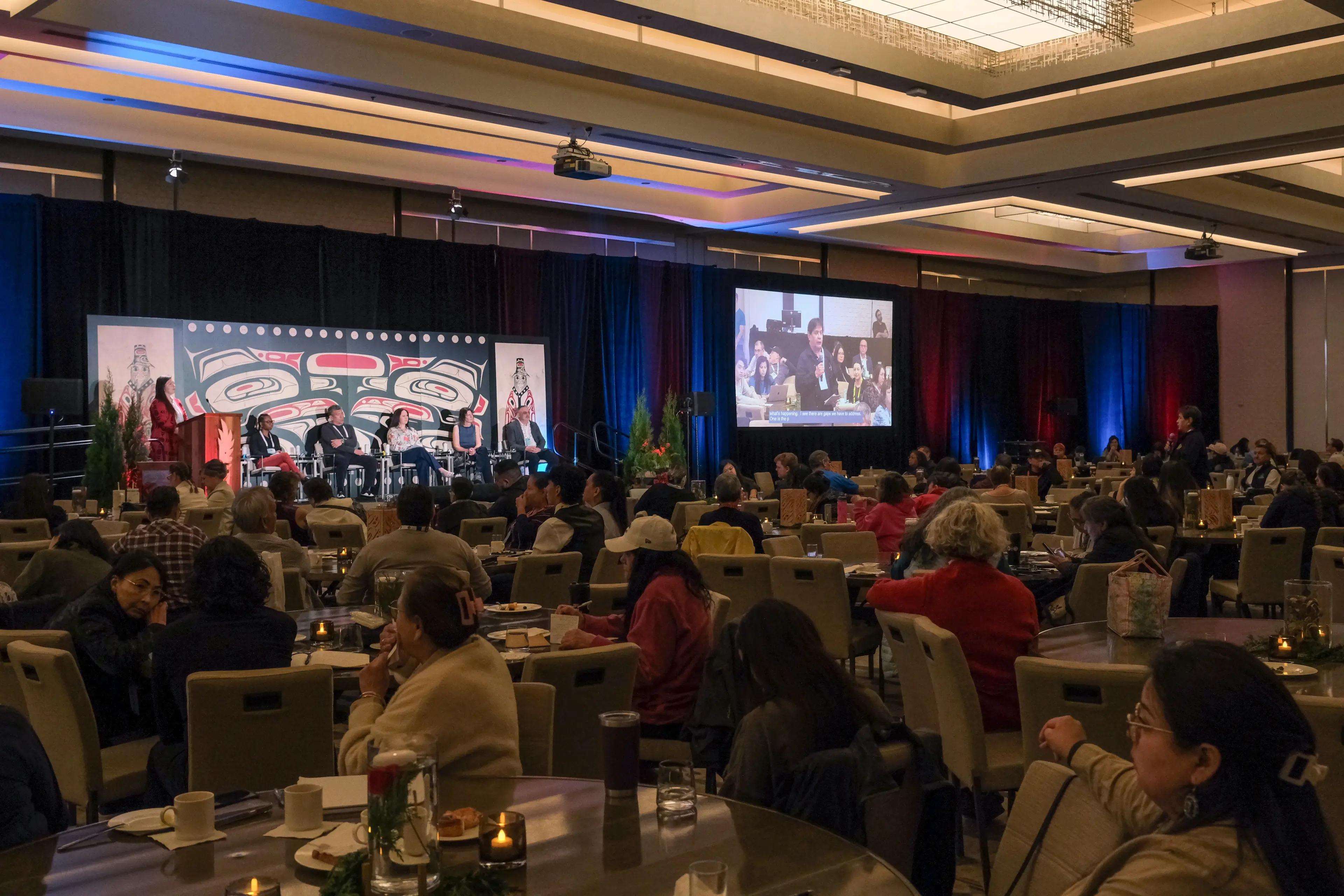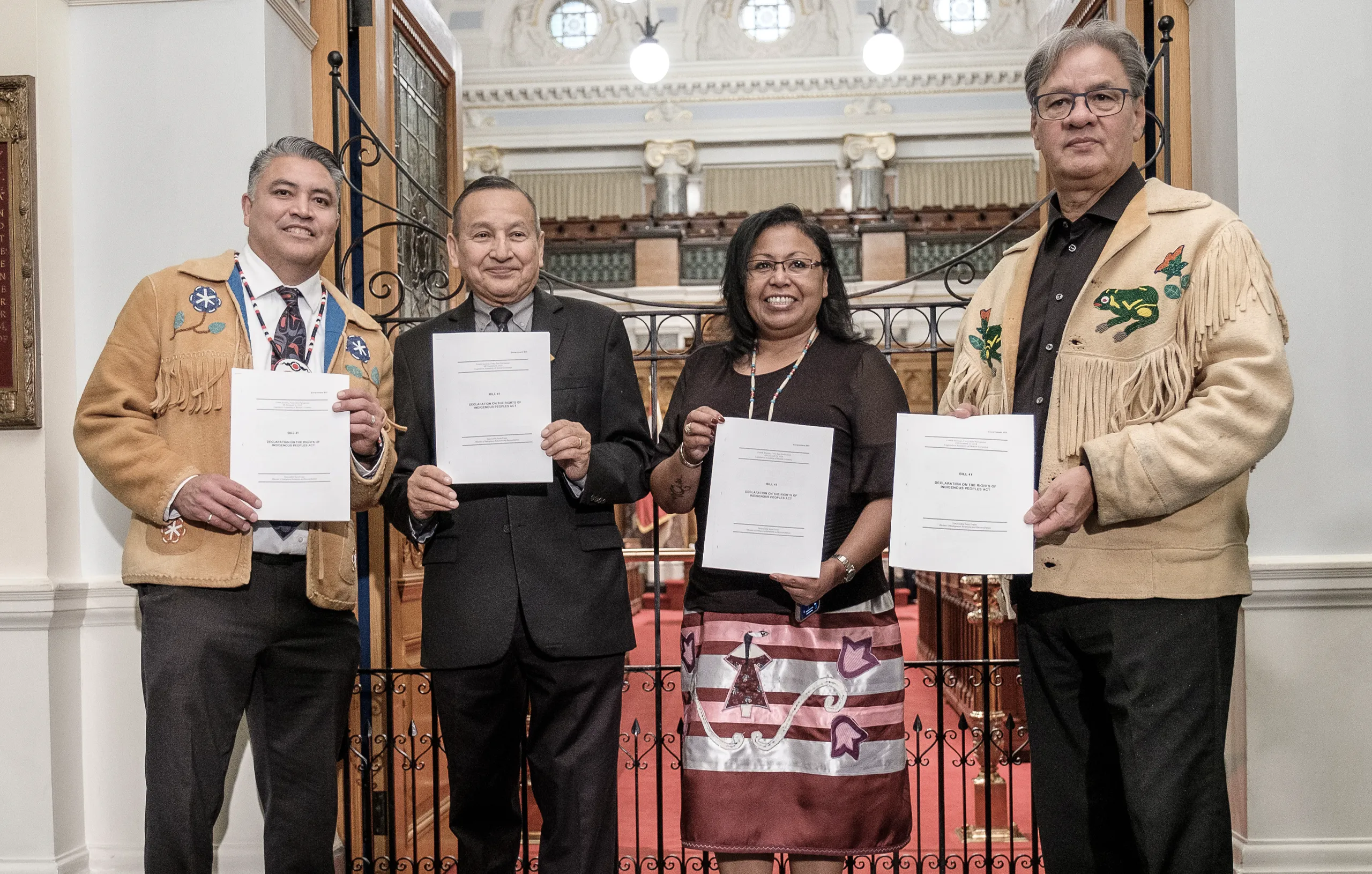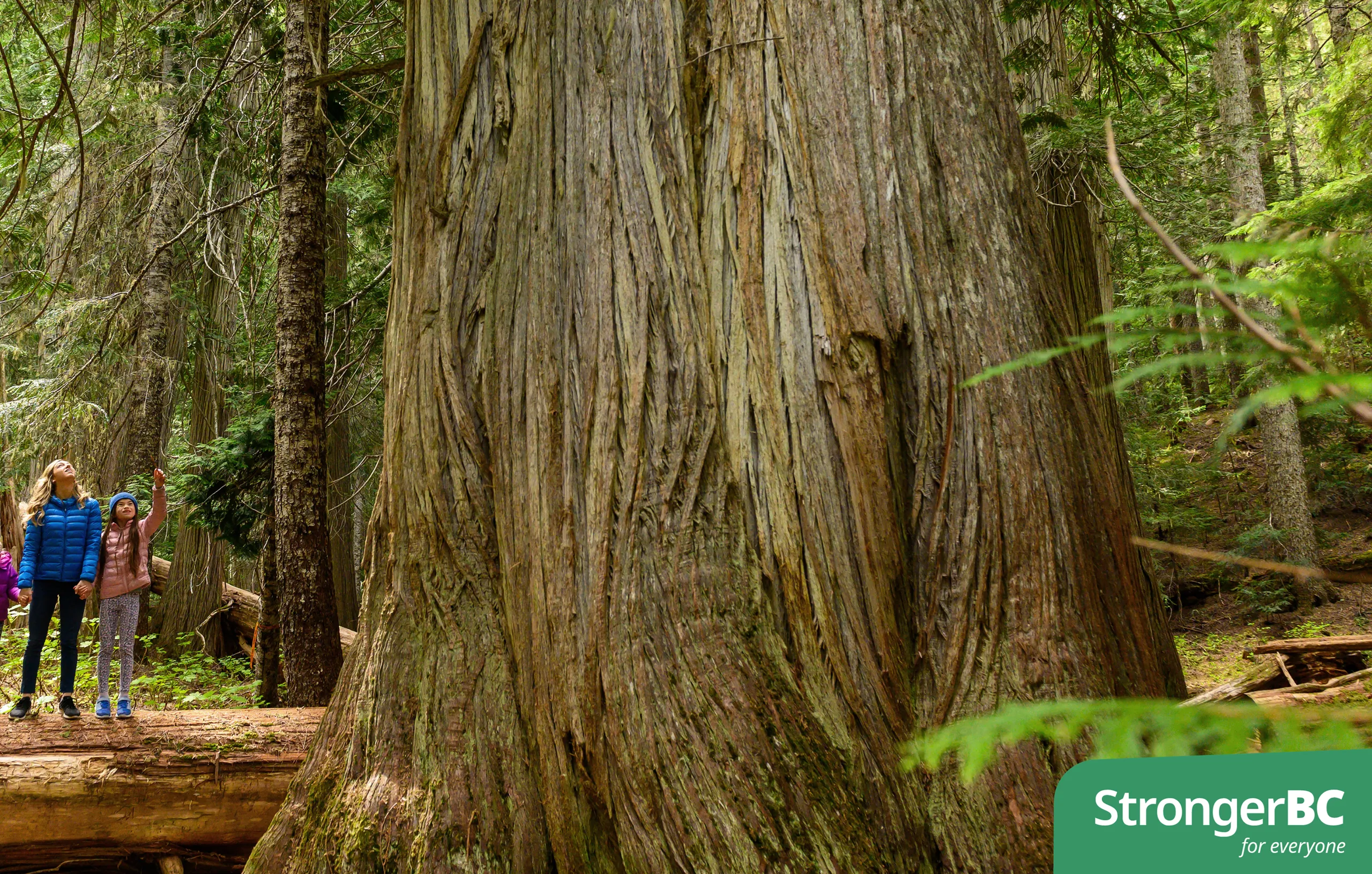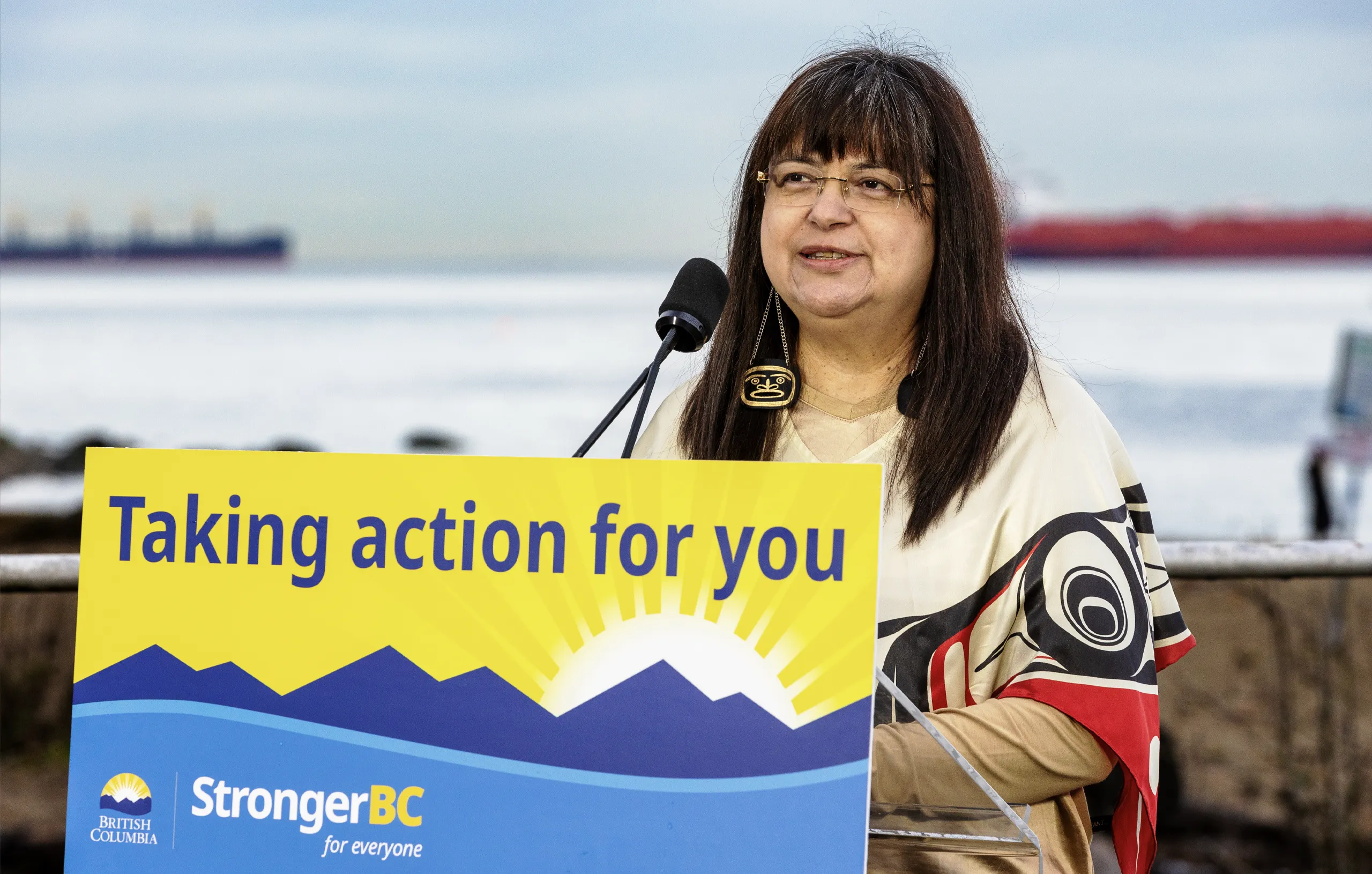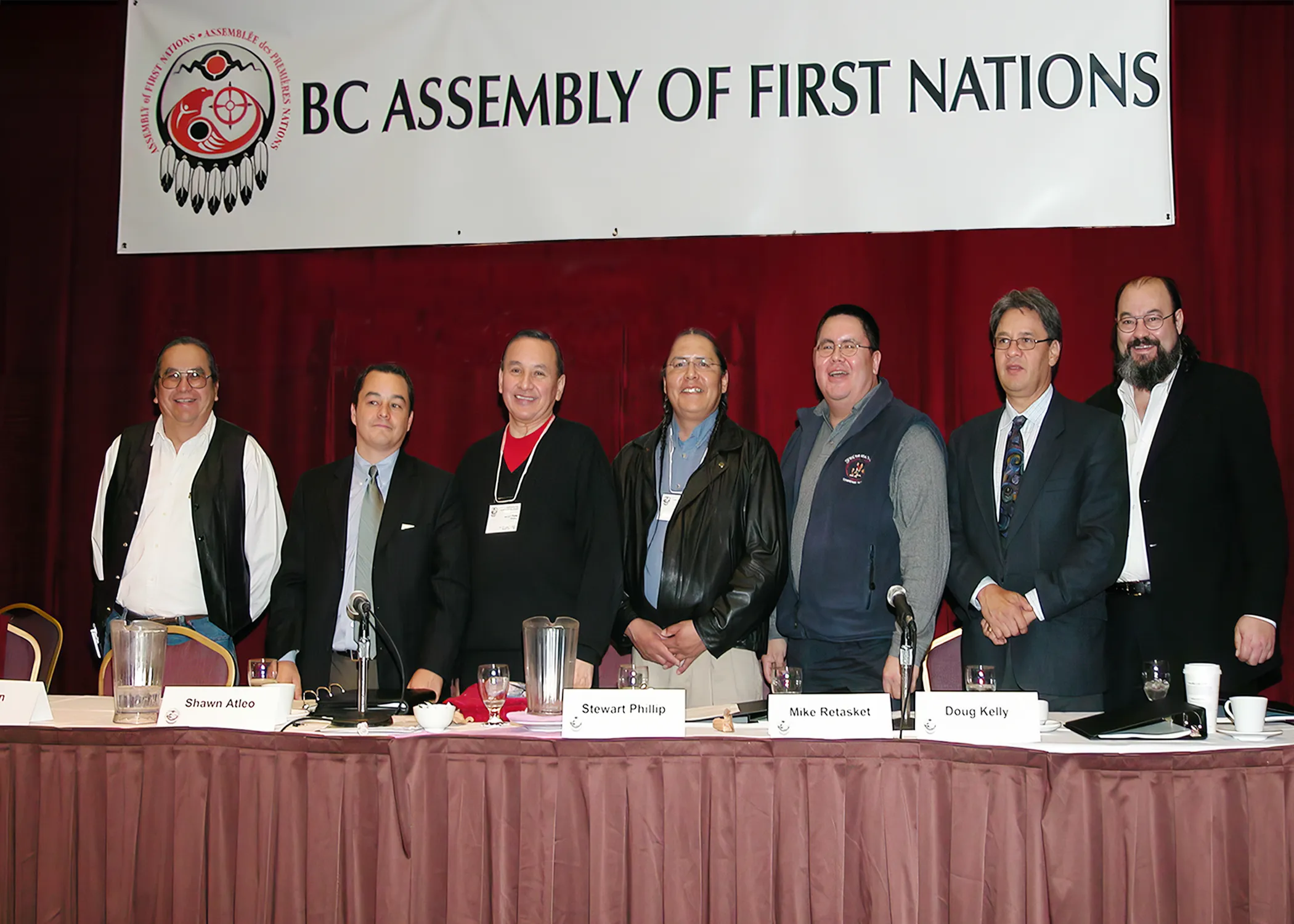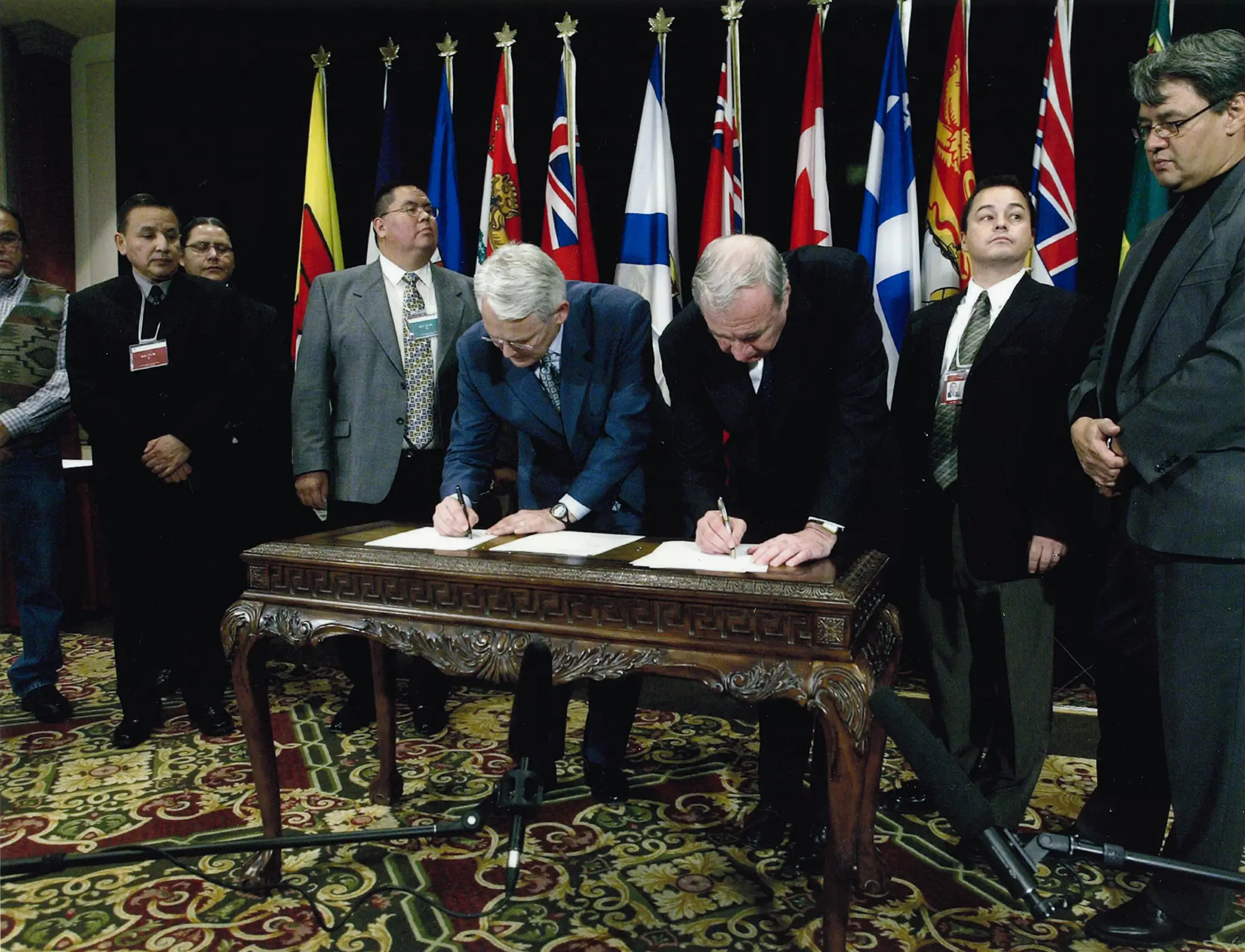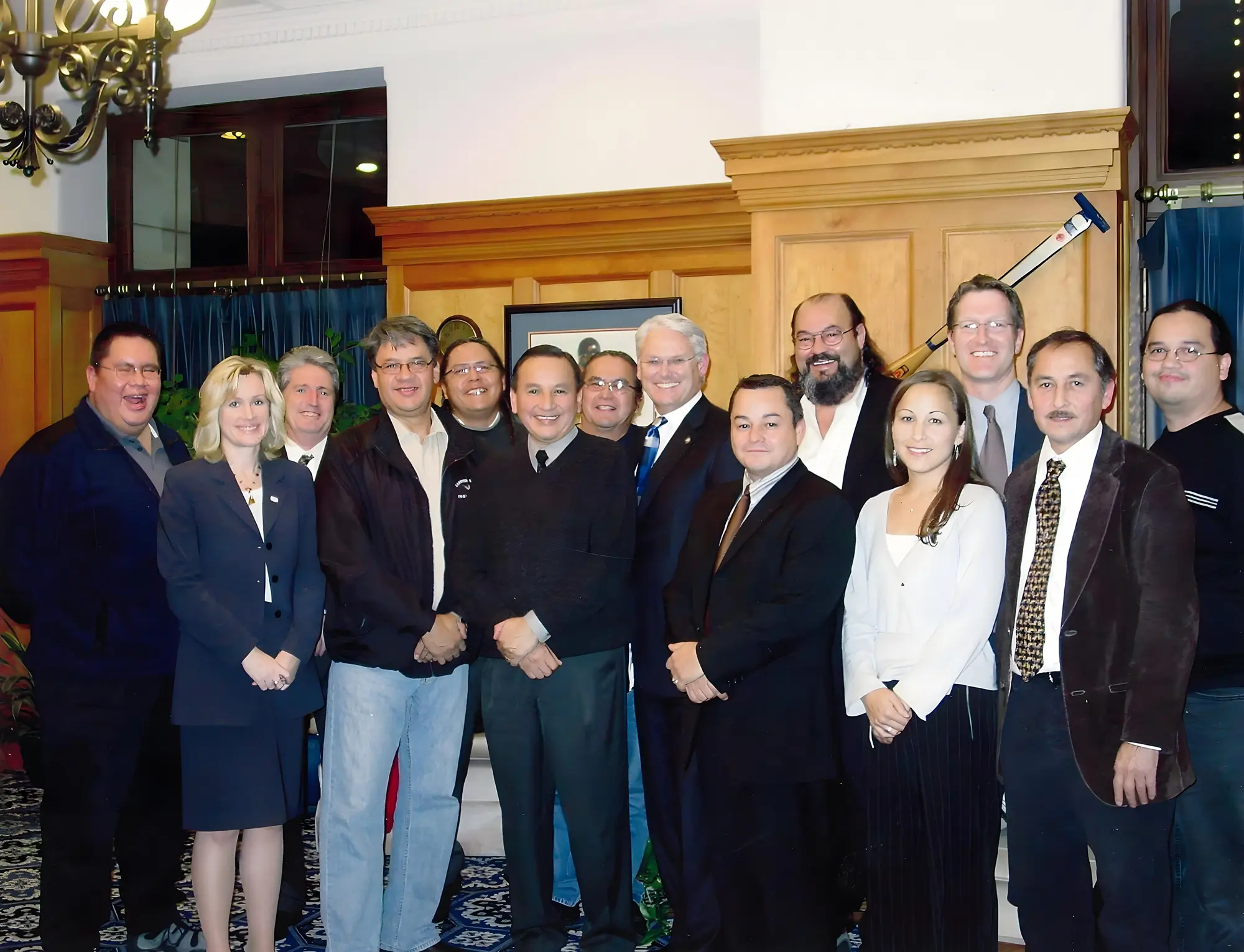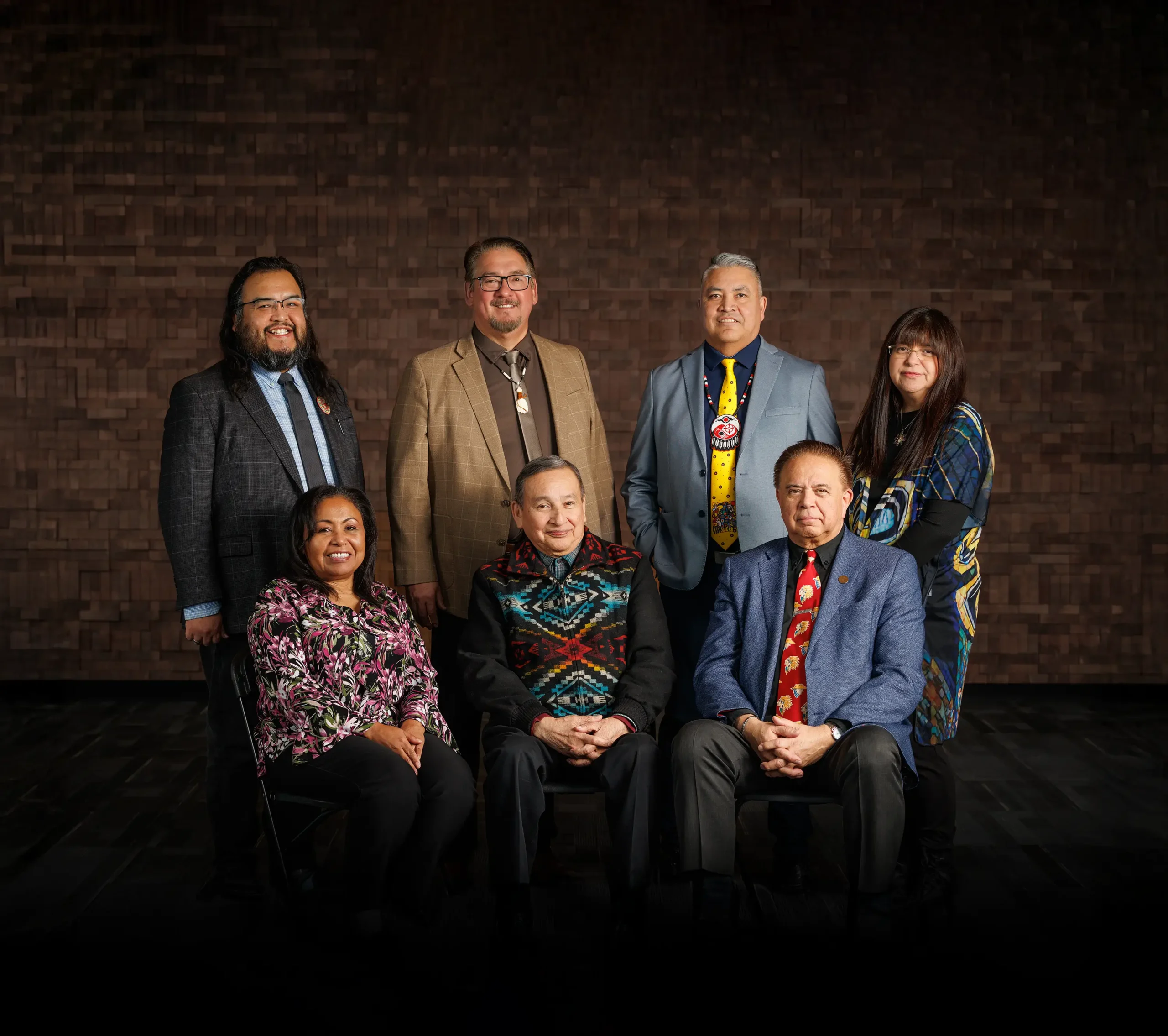First Nations Leadership Council
A strong unified voice for First Nations in B.C.
The First Nations Leadership Council (FNLC) is a political collaborative working relationship between the British Columbia Assembly of First Nations (BCAFN), the First Nations Summit (FNS), and the Union of B.C. Indian Chiefs (UBCIC).
Mandated by First Nations in B.C., the FNLC engages in advocacy and develops strategies and actions to bring about significant and meaningful change for all First Nations in British Columbia.
Our Mandate
On March 17, 2005, the political executives of the B.C. Assembly of First Nations, the First Nations Summit, and the Union of B.C. Indian Chiefs, with the support of Nations across B.C., entered into the historic Leadership Accord, affirming mutual respect between the organizations, forming a collaborative working relationship as the First Nations Leadership Council (FNLC). The FNLC has developed through decades of collaboration, respect, and at the direction of each member organizations’ mandates through resolution.
The main purpose of the FNLC is to:
- Address issues of common concern;
- Develop strategies and actions to bring about significant and substantive changes to government policy that will benefit all First Nations in B.C.;
- Create space and opportunity for First Nations to engage directly with governments on their priority issues; and
- Engage in advocacy on behalf of First Nations to achieve these objectives.
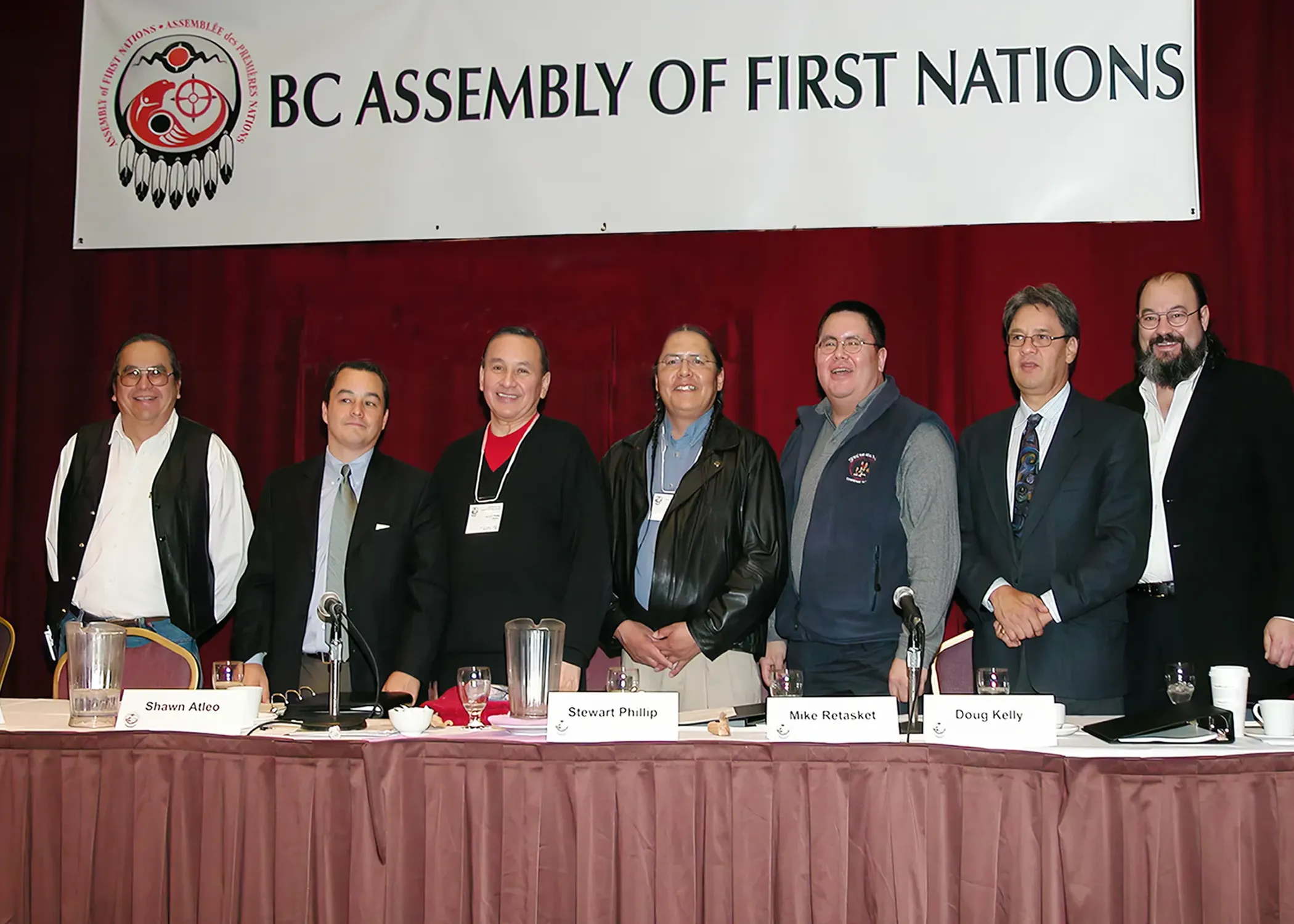
Signing of the Leadership Accord, March 17, 2005. Pictured left to right; Chief Robert Shintah (UBCIC), Regional Chief Shawn Atleo (BCAFN), Grand Chief Stewart Phillip (UBCIC), Chief Mike Retasket (UBCIC), Grand Chief Doug Kelly (FNS), Grand Chief Edward John (FNS), Dave Porter (FNS).
The mandate and work of the FNLC is collectively directed by First Nations through resolutions they pass at the three political organizations. The FNLC is not a Nation and does not hold Aboriginal Title, Rights or Treaty Rights.
The FNLC further acknowledges that any government-to-government relationship is between First Nations and the Crown, and that any engagement between the FNLC and the Crown does not fulfill, replace or displace the Crown’s obligations to First Nations under the United Nations Declaration on the Rights of Indigenous Peoples (UN Declaration), or section 35 of the Constitution Act, 1982.
Key Milestones in FNLC’s History
2005
The First Nation Leadership Council was created through a Leadership Accord on March 17, that outlined a political framework for collective work through the union of the British Columbia Assembly of First Nations (BCAFN), the First Nations Summit (FNS), and the Union of B.C. Indian Chiefs (UBCIC).
2007
2014
2017
The Reconciliation Charter for First Nations Child and Family Well-Being in B.C. was created.
2019
The FNLC played a critical role in co-developing the Declaration on the Rights of Indigenous Peoples Act (Declaration Act), which, coupled with the Declaration Act Action Plan, aims to integrate the UN Declaration into the government of B.C. as the framework for reconciliation, as called for by the Truth and Reconciliation Commission’s Calls to Action.
